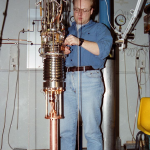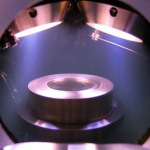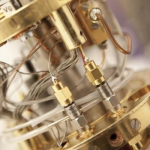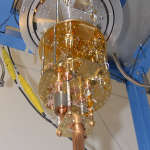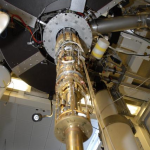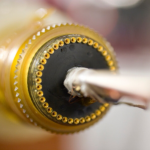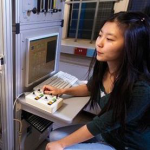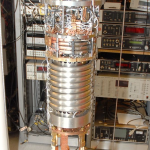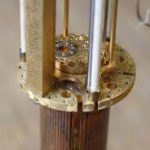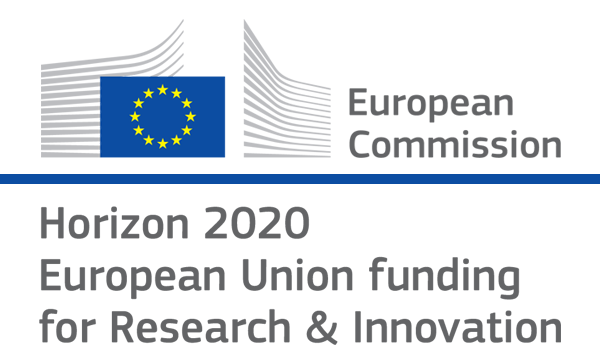

- Photon Transport in a Bose-Hubbard Chain of Superconducting Artificial Atoms
G. P. Fedorov et al., Phys. Rev. Lett. 126, 180503 (2021) - Path-Dependent Supercooling of the
He3 Superfluid A-B Transition
Dmytro Lotnyk et al., Phys. Rev. Lett. 126, 215301 (2021) - Superconductivity in an extreme strange metal
D. H. Nguyen et al., Nat Commun 12, 4341 (2021) - High-Q Silicon Nitride Drum Resonators Strongly Coupled to Gates
Xin Zhou et al., Nano Lett. 21, 5738-5744 (2021) - Measurement of the 229Th isomer energy with a magnetic micro-calorimeter
T. Sikorsky et al., Phys. Rev. Lett. 125 (2020) 142503
A microkelvin cryogen-free experimental platform with integrated noise thermometry
Batey, G., Casey, A., Cuthbert, M., Matthews, A., Saunders, J. and Shibahara, A.We report experimental demonstration of the feasibility of reaching temperatures below 1 mK using cryogen-free technology. Our prototype system comprises an adiabatic nuclear demagnetization stage, based on hyperfine-enhanced nuclear magnetic cooling, integrated with a commercial cryogen-free dilution refrigerator and 8 T superconducting magnet. Thermometry was provided by a current-sensing noise thermometer. The minimum temperature achieved at the experimental platform was 600 µK. The platform remained below 1 mK for over 24 h, indicating a total residual heat-leak into the experimental stage of 5 nW. We discuss straightforward improvements to the design of the current prototype that are expected to lead to enhanced performance. This opens the way to widening the accessibility of temperatures in the microkelvin regime, of potential importance in the application of strongly correlated electron states in nanodevices to quantum computing
New J. Phys. 15, 11, 113034 (2013)
doi: 10.1088/1367-2630/15/11/113034
